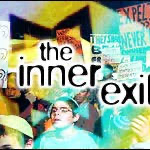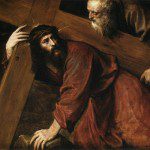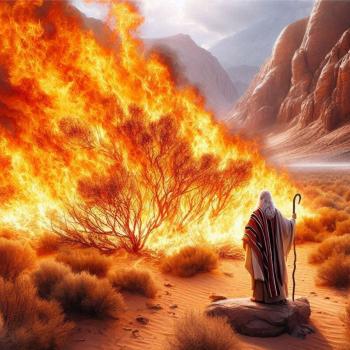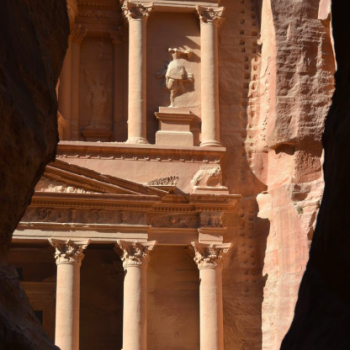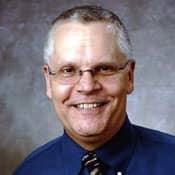In a lot of parishes right now, it's crunch time.
The choir is fine-tuning the "Hallelujah Chorus" and "Tantum Ergo." The altar servers are being put through their paces—there are processions and genuflections and incense-without-end coming up—and in countless choir lofts, in numberless churches, nervous deacons are trying to stay on pitch and on key through that seven-minute a capella Everest of Chant, the Exultet.
In my diocese, they're getting ready for Reconciliation Monday, when priests will be hearing confessions throughout the afternoon and evening in every church. Around the world, crosses are being covered and statues are being swathed in purple. The elect who have been preparing in the RCIA process are nervously awaiting that splash of cold water at the Easter Vigil, that dab of chrism on the brow, that first taste of wafer on the tongue—the sensations of being received and of receiving. Ushers are bracing for throngs of standing room only masses. Will there be enough palms?
We're in the final stretch before Holy Week, set to begin this Sunday, Palm Sunday.
With all the busyness and distractions, it can be easy to forget what this coming week is really about.
Back in the 1960s, there was a TV show called "That Was the Week That Was," which satirized current events. It was a precursor to "Saturday Night Live" or "The Daily Show."
Well, what we are beginning Sunday will mark the ultimate "week that was." The liturgies of this coming week are powerful and primal. We are a part of something both ancient and new, and what we do this week reminds us of that. The altar will be stripped. The cross will be venerated. The tabernacle will be emptied. The Blessed Sacrament will be moved. Bells will be stilled.
It is unlike any other time in our Catholic calendar.
This week, take the time to think deeply about what we are doing, and what we are remembering. Take time to realize what this week has meant to the world.
For close to two thousand years, we have gathered like this, to light candles and chant prayers and read again the ancient stories of our deliverance and redemption. But are we aware of what we are doing? Do we understand what it means? Do we realize the price that was paid?
Try this. During Holy Week, take a moment in each day that passes to wonder: What was Christ doing during this time of that one week all those centuries ago? What was on his mind on Monday, on Tuesday, on Wednesday? What sort of anguish? What kind of dread? Has anything we have ever worried about, or lost sleep over, or agonized about, even come close?
He was "a man like us in all things but sin." He must have been terrified. Long after the others had drifted off to sleep, did he stay awake and worry? Maybe he sat up alone, late at night, deep in thought or silent prayer. Wondering: how intense would the pain of death become? How long would it last? How much humiliation would he be forced to endure, stripped and bleeding? And: What about his mother? Is there anything he could do to spare her from this? And perhaps more than once he thought, somehow, of the endless generations to come—all the others who would follow him because of this one week.
Including you and me. He did it for us.
As you shop for Easter baskets and dye, and select your holiday lamb at Trader Joe's, I'd ask you to think of this. Wonder about it. Make it a kind of prayer.
Remember what we are doing, and why.
Because, of all the calendars in all of human history, this is the one week that changed everything. This is the week that saw the institution of the Eucharist. It is a week that witnessed breathtaking betrayal, and denial, and torture, and heartbreak, and suffering, and death.
And then, incredibly, resurrection.
Think of all that has happened because of this week. All the martyrs and missionaries, saints and servants of God who gave everything—all because of what we are about to celebrate, and remember.
Because of this week, the world has ever been the same.
This is "the week that was." Seven days that shook the world.
And the tremors haven't stopped.
4/12/2011 4:00:00 AM
